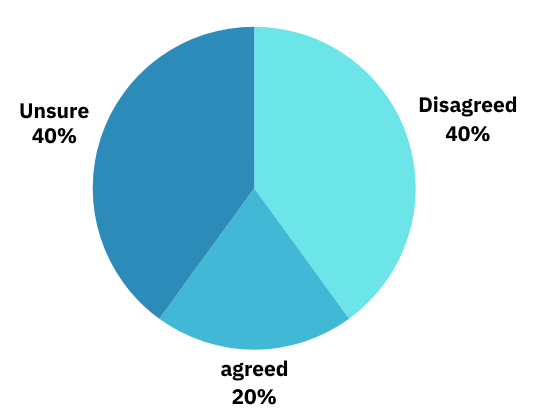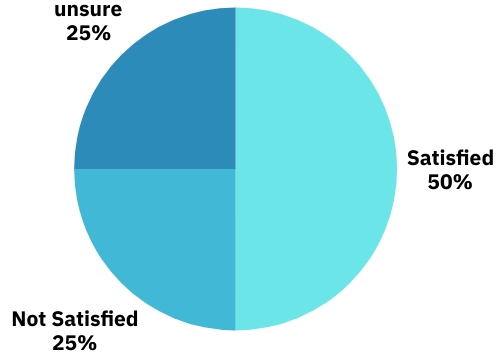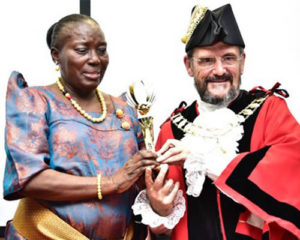The C&M Centre for Leadership and Good Governance UK conducted a detailed survey to assess the views of Nigerians residing in the UK regarding the controversial remarks made by Kemi Badenoch MP about Nigeria. The survey also explored responses from Nigerian political leaders, the state of Nigeria-UK diplomatic relations, and broader themes such as cultural identity, diplomacy, and leadership. This report encapsulates the insights of approximately 100 participants, shedding light on the complex interplay between identity, leadership, and diplomacy.
Demographics of Respondents
- Age Groups:
- 25–34 years: 1%
- 35–44 years: 17%
- 45–54 years: 33%
- 55+ years: 50%

- Residency:
- 85% have lived in the UK for over 10 years.
- 15% have resided in the UK for less than 5 years.
- Connection to Nigeria:
- Most respondents identified as dual citizens of Nigeria and the UK.
Key Findings and Statistics
- Kemi Badenoch MP’s Comments on Nigeria:
- Accuracy of Comments:
- 40% strongly agreed that her remarks were accurate and reflected Nigeria’s governance challenges.
- 30% agreed, acknowledging her criticisms as justified.
- 30% disagreed or strongly disagreed, perceiving her remarks as biased or damaging to Nigeria’s global image.
- Accuracy of Comments:

- Qualitative Insights:
- Positive Sentiments: Many praised Badenoch for addressing issues such as corruption and leadership failures in Nigeria, viewing her as a bold and honest voice.
- Negative Sentiments: Some criticized her comments as politically motivated and damaging to Nigeria’s reputation, with concerns about her distancing herself from Nigerian heritage for political gain.
- Responses by Nigerian Leaders:
- Reactions from Hon. Abike Dabiri-Erewa and Vice President Kashim Shettima:
- 40% found their responses unhelpful, dishonest, or unnecessary.
- 20% strongly agreed with their reactions, describing them as appropriate.
- 40% were neutral or undecided.
- Reactions from Hon. Abike Dabiri-Erewa and Vice President Kashim Shettima:

- Perceived Impact on Nigeria-UK Relations:
- 45% believed these confrontations harmed Nigeria-UK relations.
- 30% were neutral.
- 25% felt there was no significant impact.

3. Representation and Leadership:
- Kemi Badenoch MP as a Nigerian-British Leader:
- 50% expressed satisfaction with her role in UK politics.
- 25% were indifferent.

- Potential as a Conservative Leader:
- 60% were optimistic about her political trajectory as a potential leader of the opposition.
- 40% doubted her ability to lead the Conservative Party to victory.

4. Voting Preferences:
- Conservative Party Support:
- 50% indicated support for the Conservative Party despite Badenoch’s controversial views.
- The remaining participants were either undecided or strongly opposed to voting Conservative.
5. Nigeria’s Diplomatic Image and Representation:
- Kashim Shettima’s Role in Diplomacy:
- 40% felt his comments were detrimental to Nigeria’s diplomatic reputation.
- 30% believed his statements were neutral or inconsequential.

- Appointment of a High Commissioner:
- 70% agreed that President Bola Ahmed Tinubu should prioritize appointing a substantive High Commissioner to the UK.
6. Conflict of Identity:
- Maintaining Nigerian Identity vs. British Integration:
- 60% of respondents acknowledged a struggle between preserving their Nigerian identity and integrating into British society.
Recommendations for Nigeria-UK Relations
- Strengthen Diplomatic Ties:
- Respondents emphasized the importance of consistent engagement and collaboration between Nigeria and the UK.
- Address Governance Issues:
- Many urged Nigerian leaders to prioritize transparency, justice, and economic reforms to restore credibility and confidence in governance.
- Enhance Nigeria’s Global Image:
- Efforts to improve Nigeria’s international standing through ethical leadership and effective policies were strongly recommended.
Conclusion: The survey highlights a complex spectrum of opinions among Nigerians in the UK regarding the ongoing relationship between Nigeria and the UK. While some respondents view Kemi Badenoch MP’s remarks as constructive criticism highlighting leadership and governance challenges in Nigeria, others consider them divisive and damaging. Additionally, Nigerian leaders’ responses to the remarks and their perceived impact on diplomatic relations have sparked mixed reactions. This complexity underlines the importance of balancing criticism with respect, ensuring that discussions contribute positively to diplomatic relations and governance improvements.
Qualitative Insights
- Positive Views on Kemi Badenoch’s Remarks:
- Many respondents viewed Kemi Badenoch’s criticisms as constructive and timely, highlighting significant issues such as leadership failures, corruption, and the need for systemic reform in Nigeria.
- Respondents considered her a “trailblazer” for speaking out on uncomfortable truths that many Nigerians are reluctant to address.
- Negative Views on Kemi Badenoch’s Remarks:
- Some respondents found her remarks derogatory, believing they undermined Nigeria’s reputation on the global stage.
- Critics argued that her comments were politically motivated, distancing herself from Nigeria in favor of aligning with British political goals, which could harm the relationship between the two countries.
Key Findings and Takeaways:
- Need for Stronger Leadership:
- There is a clear call for Nigerian leaders to strengthen their governance systems, focusing on transparency, justice, and economic reforms.
- Diplomatic Reinvigoration:
- Both countries need to reinvigorate their diplomatic engagement to ensure that constructive criticism leads to collaboration rather than division.
- Balanced Narrative:
- A balanced narrative should be promoted to foster positive engagement between Nigeria and the global community, ensuring that critical remarks are used as tools for progress rather than detractors.



